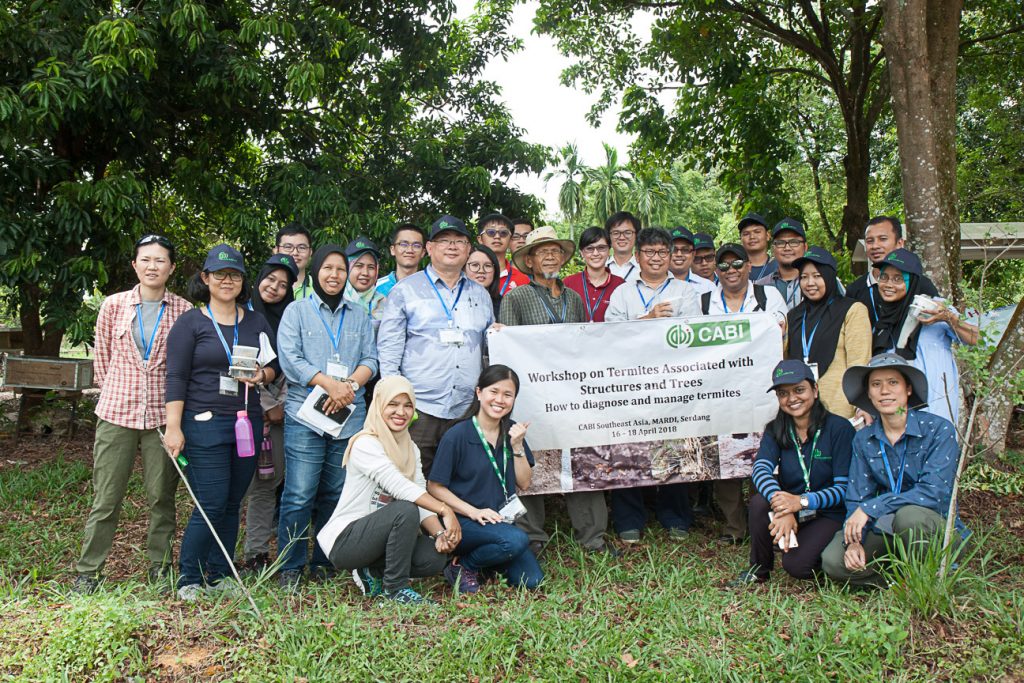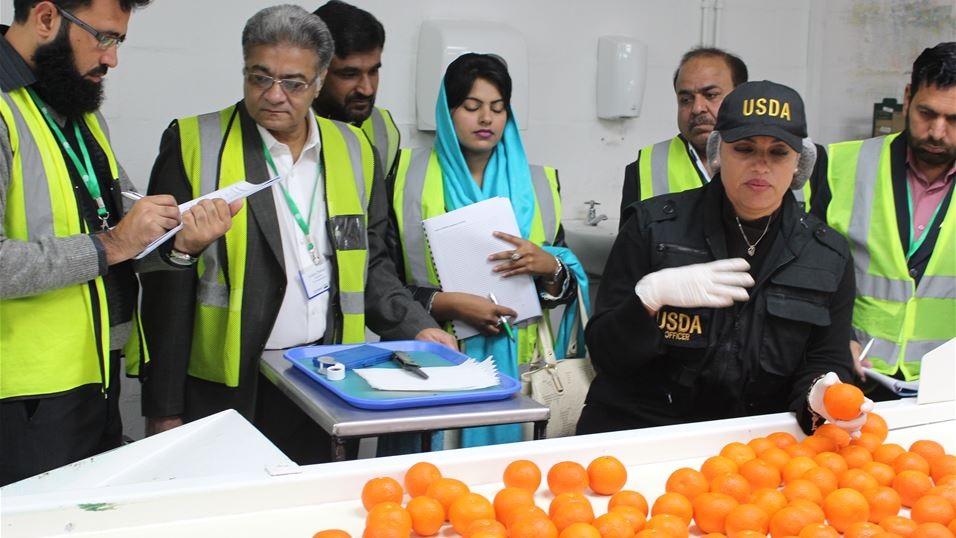Mapping out ‘Biological control for a healthy planet’ – notes from a China conference
By Dr Sivapragasam (Siva) Annamalai, Regional Director/Plantwise Regional Team Leader at CABI More than 1000 biological control researchers and practitioners from 46 countries came together in Beijing, China during the week of 14 to 16 May 2018 to participate in this First International Congress on Biological Control (ICBC-1). The theme of the Congress was “Biological…
To bee or not to bee
This Sunday the UK celebrated World Bee Day (May 20th); the first year of the now to be annual UN awareness event aimed at increasing our sensitivity to the global importance and increasing struggle of pollinators. Whilst the event hopes to increase understanding of pollinators generally, including butterflies, moths, birds and bats, the focus is…
International Day for Biological Diversity 2018
This year the 22nd of May will be a celebration of the progress made since the implementation of the Convention on Biological Diversity 25 years ago. The International day for Biological Diversity was designed to overlap with the UNs post-2015 Sustainable Development Goals and the date chose to commemorate the adoption of the Convention of…
A conversation on ‘Communicating Evidence for Sustainable Development’
Last month two CABI employees, Solveig Danielsen and Paul Day, attended a conference at Wageningen University on Communicating Evidence for Sustainable Development. Sol works in the Monitoring and Evaluation team (M&E) and Paul is a communicator. The conference led to a lively conversation which we captured here.
Termite workshop photo special – exploring tree-damaging termites in the tropics
CABI scientists have held a successful three-day workshop exploring how to diagnose and manage termites associated with structures and trees in the tropics. The workshop, held at CABI’s South East Asia (SEA) office building at MARDI in Serdang, Malaysia, highlighted termites as ecologically important insects with significant roles to play as decomposers but also as…
Dr Rob Reeder goes ‘bananas’ about pests and diseases on the Urban Farm Podcast
Plant pathologist Dr Rob Reeder has this week spoken to Greg Peterson of the US-based Urban Farm Podcast about how the global supply of bananas (particularly the Cavendish variety) could be put at risk from a three-pronged attack of pests and diseases. In the podcast, Dr Reeder reveals the reasons why the fungus known as…
How Genetically Modified Organisms (GMOs) Enter the Food Chain in non-GMO Producing Countries
How Genetically Modified Organisms (GMOs) Enter the Food Chain in non-GMO Producing Countries - by Tatjana Brankov A superficial review of the legislation on transgenic foods and feeds indicates that consumers in non-GMO producing countries consume GMO-free food. However, less attention is paid to the fact that GMOs can enter the food chain through the import of transgenic foodstuff and feedstuff or by contamination. In some countries, transgenic food production is fully equal to conventional production. The concept of substantial equivalence, developed by the OECD and further elaborated by FAO/WHO “embodies the concept that if a new food or food component is found to be substantially equivalent to an existing food or food component, it can be treated in the same manner with respect to safety, i.e. the food or food component can be concluded to be as safe as the conventional food or food component” (FAO/WHO 1996). Such a…
Building capacity for greater food security in Pakistan
As part of CABI’s mission to help farmers grow more and lose less, we have been funded by USAID – via the United States Department of Agriculture (USDA) – to help Pakistan improve its sanitary and phytosanitary (SPS) systems and therefore open up its fruit and vegetables to more high-end global markets that were previously untapped. Currently these products only contribute 13% of the country’s export but improvements to its SPS capabilities could see this number rise significantly.
CABI board member Paulus Vershuren explains how CABI is delivering on SDG17: Partnerships for the Goals
[youtube https://www.youtube.com/watch?v=KjrI0hkWTZ4?feature=oembed] The world we live in today faces complex and interconnected challenges that individual organisations alone cannot easily resolve. When the scale of the challenge is global, organisations must find ways of strengthening their partnerships and coming together to find the best and most sustainable solutions. This is why partnerships are at the…
CABI board member Dr Prem Warrior explains how CABI is delivering on SDG15: Life on Land
[youtube https://www.youtube.com/watch?v=F50tEAWounM?feature=oembed] CABI helps prevent, detect and limit the impact of invasive species by training government officials about the way they arrive and spread, supporting early detection and removal, and advising on natural, sustainable control (biocontrol) and pest management. By conserving biodiversity and ecosystems, we're improving the preventing and management of invasive species.





